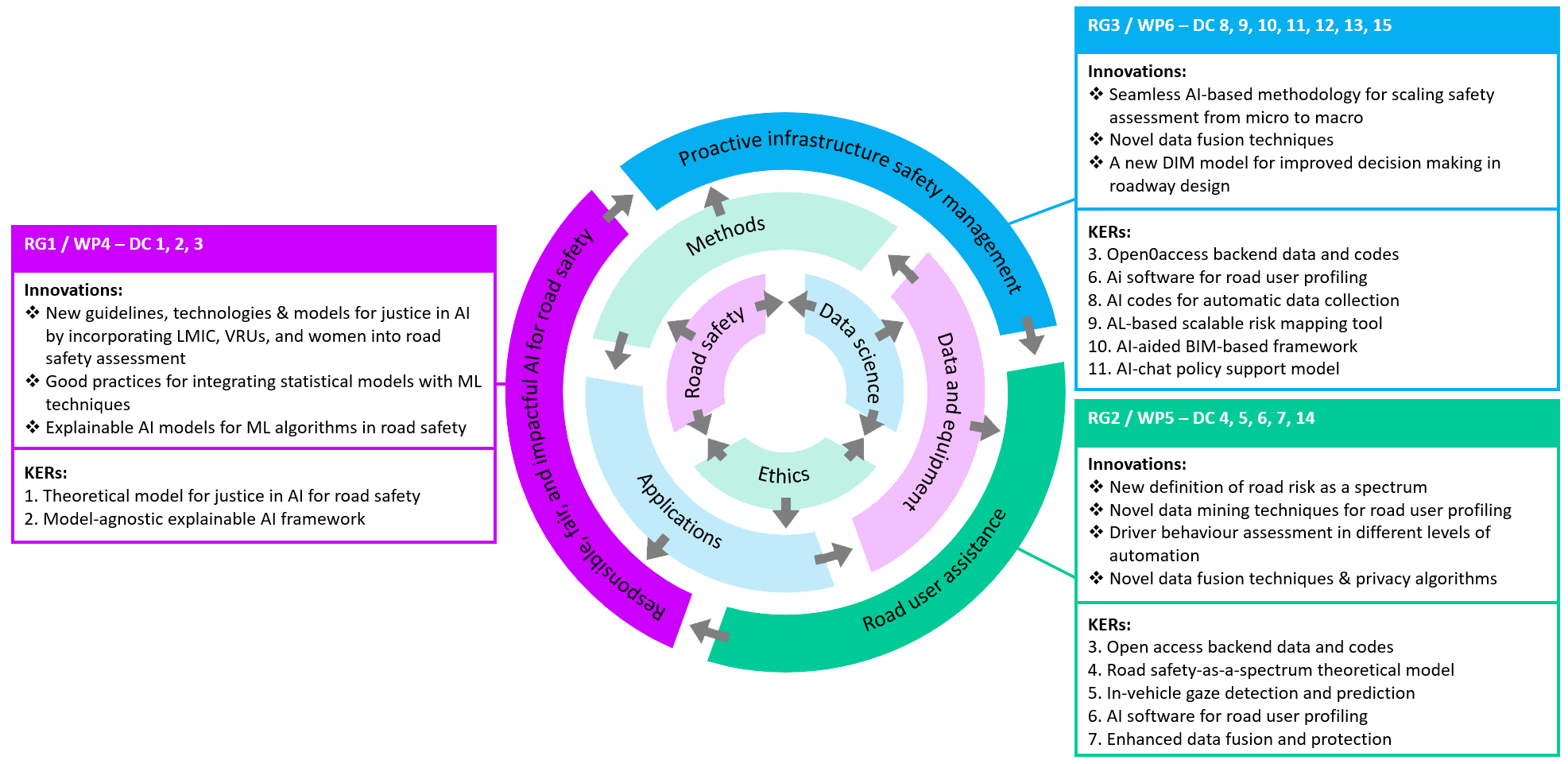About
IVORY – ‘AI for Vision Zero in Road Safety’ is an industrial doctorates network, aiming to develop a new framework for the integration of AI in road safety and create a new generation of leading researchers in the field, in order to address the UN Sustainable Development Goals target 3.6 (halving the number of traffic fatalities by 2030) and EC ‘Vision Zero’ strategy (eliminating traffic fatalities by 2050). IVORY consists of 4 academic and 8 non-academic beneficiaries, as well as 8 associated partners, joining from engineering, data science and ethics of technology disciplines from 10 countries. It will train 13 researchers on new responsible AI applications for road user assistance and infrastructure safety management, and will create a sustainable learning and networking platform.
Objectives
– Responsible, fair and impactful AI for road safety
– New ways of road user support and human vehicle- environment interaction
– New scalable and equitable AI technologies for proactive infrastructure safety management
– A sustainable knowledge sharing network on AI for road safety
IVORY outputs will not only provide more robust user support through AI in vehicle automation, but will also allow to responsibly and proactively manage the persistent problems of existing conventional, low automation transport systems, so that new opportunities for global road safety impact can emerge. Moreover, IVORY takes a design for-values approach for AI in road safety, operationalising the ethical principles of justice and explainability, and providing efficient AI solutions also for disadvantaged groups (e.g. vulnerable road users, low-to-middle-income countries).
IVORY will create an on-line learning & networking platform for AI in road safety, to be available after the end of the project for future researchers in this field.
Methodology
IVORY’s ambition is to unlock the full potential of AI for road safety, by balancing the current prevalent policy and research goal of developing more user support and automation (Research Goal 2), with two other key research goals, namely of responsibly (Research Goal 1) and proactively (Research Goal 3) managing the persistent problems of existing ‘conventional’, low-automation transport systems, so that new opportunities for global road safety impact can emerge.

Inner layer – key disciplines: Within the inner layer, three disciplines share their knowledge. Road safety is the core discipline in IVORY, bringing together fundamental theories from safety science, behavioural dimensions from human factors and traffic psychology, and design elements from infrastructure engineering. Ethics of technology introduces the value dimension, which ensures that the ethical aspects of AI are incorporated. Data science is the cornerstone of AI that contributes to IVORY by combining data engineering, models and algorithms.
Middle layer – methods, data, equipment and applications: Although AI is often understood as an ML application, a broad view on AI methods is used in IVORY, including heuristics, advanced econometric models and ML techniques. Similarly, various application areas are studied in the project, including general populations, disadvantaged groups such as VRUs, LMICs etc. In doing so, a wealth of data collected from emerging technologies and equipment are used. The IVORY partners have access to a large number of national and international data sources that will be used in the project.
Outer layer – research goals: The combination of disciplines, methods, data and application areas creates a new road safety ecosystem with 3 main research goals: responsible, fair and impactful AI for road safety, supporting road users and human-vehicle-environment interaction, and proactive infrastructure safety management. They are linked to individual research projects, with distinct and collective contributions to the innovations of IVORY, as well as its Key Exploitable Results (KERs).
